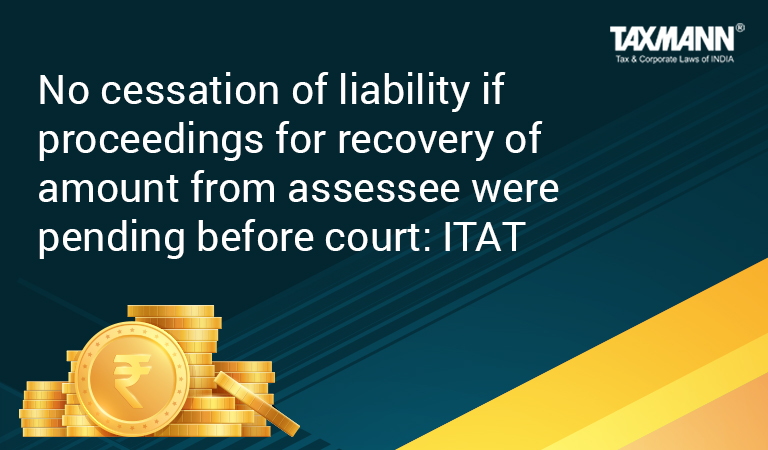No cessation of liability if proceedings for recovery of amount from assessee were pending before court: ITAT
- News|Blog|Income Tax|
- 2 Min Read
- By Taxmann
- |
- Last Updated on 23 September, 2021

Case details: DCIT v. Surbhit Impex (P.) Ltd. - [2021] 130 taxmann.com 315 (Mumbai - Trib.)
Judiciary and Counsel Details
-
- Pramod Kumar, Vice President and Saktijit Dey, Judicial Member
- Vijaykumar G. Subramanyam for the Appellant.
- K. Shivaram, Sr. Adv. for the Respondent.
Facts of the Case
Assessee was a company engaged in the business of trading. During the assessment, Assessing Officer (AO) noted that the assessee had two creditors. The assessee had purchased and sold the consignment, and since the consignment was not of good quality, the payments to these parties were not made.
Accordingly, AO held that amount to be paid to these creditors was trading liability & was not paid till date, thus the same to be treated as deemed income of business by cessation of trading liability under section 41(1)(a) of the Income-tax Act, 1961. Assessee opposed treatment because the liability had not ceased as the same was disputed before judicial forums. However, AO rejected the assessee’s contentions.
The CIT(A) reversed the order of AO. Aggrieved-AO filed the instant appeal before the Tribunal.
ITAT Held
The Mumbai Tribunal held that it was undisputed position that as on the relevant point of time, the proceedings against the assessee for recovery of amounts payable to creditors were pending before the Hon’ble judicial forum.
To bring an amount to tax under section 41(1)(a), three fundamental conditions are to be satisfied. Out of these three, one of the very foundational conditions is that there has to be benefit in respect of such trading liability through ‘remission and cessation’.
In the instant case, that condition was not satisfied due to the pendency of recovery proceedings initiated by creditors against the assessee. Thus, the order of CIT(A) deleting additions was to be upheld.
Disclaimer: The content/information published on the website is only for general information of the user and shall not be construed as legal advice. While the Taxmann has exercised reasonable efforts to ensure the veracity of information/content published, Taxmann shall be under no liability in any manner whatsoever for incorrect information, if any.

Taxmann Publications has a dedicated in-house Research & Editorial Team. This team consists of a team of Chartered Accountants, Company Secretaries, and Lawyers. This team works under the guidance and supervision of editor-in-chief Mr Rakesh Bhargava.
The Research and Editorial Team is responsible for developing reliable and accurate content for the readers. The team follows the six-sigma approach to achieve the benchmark of zero error in its publications and research platforms. The team ensures that the following publication guidelines are thoroughly followed while developing the content:
- The statutory material is obtained only from the authorized and reliable sources
- All the latest developments in the judicial and legislative fields are covered
- Prepare the analytical write-ups on current, controversial, and important issues to help the readers to understand the concept and its implications
- Every content published by Taxmann is complete, accurate and lucid
- All evidence-based statements are supported with proper reference to Section, Circular No., Notification No. or citations
- The golden rules of grammar, style and consistency are thoroughly followed
- Font and size that’s easy to read and remain consistent across all imprint and digital publications are applied



 CA | CS | CMA
CA | CS | CMA
